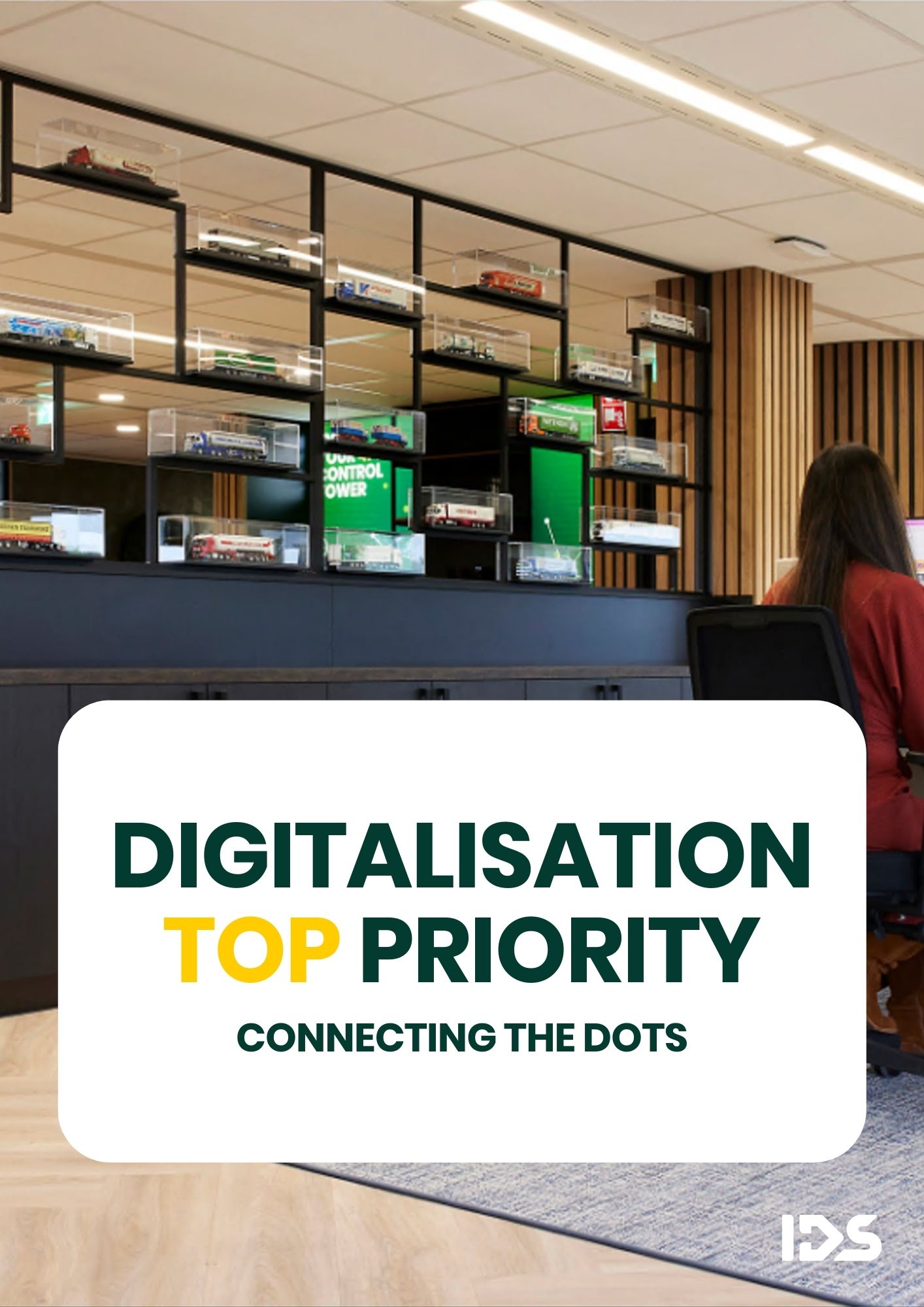
Whitepaper: Digitalisation top priority
Do you recognise that too? All those Excel sheets, e-mails and phone calls to get the right information in the right place?
In the world of transportation, the ability to exchange data and documents quickly and accurately is crucial. Electronic data Interchange (EDI) plays an essential role in this regard. At IDS, the non-asset transportation director for Europe, we understand how important EDI is for an efficient and streamlined supply chain. In this blog, we discuss what EDI and Managed EDI are and when it is interesting to get involved.
What is EDI?
Electronic Data Interchange (EDI) is a way to exchange data and documents in a standardized and automated manner between different parties in the supply chain. This includes documents such as purchase orders, invoices, bills of lading and more. EDI eliminates the need for paper documents and manual entry, making processes faster, accurate and more efficient.
What is Managed EDI?
Shippers and carriers who want to enjoy the benefits of EDI but face the complexity of implementing and managing it find the solution in Managed EDI. In a Managed EDI solution, organizations choose to work with a specialized EDI partner. The partner then takes on the construction and management of all EDI links. By choosing an independent EDI partner, it is possible to connect an infinite number of supply chain partners and remain flexible to change as the situation demands. This increases the resilience and agility of an organization and an additional advantage is that by working together, an organization can keep the focus entirely on its own core activities.
More than a boost to productivity and job satisfaction
Managed EDI brings another important benefit in addition to a boost to productivity. Using this technology to link an ERP system to a Transport Management System (TMS) makes it easy to select the right carrier(s) based on predetermined criteria when a transport order is automatically created. This prevents errors and immediately contributes to cost reduction and increasing customer satisfaction.
When is Managed EDI interesting?
Managed EDI is interesting when too much time is lost in administrative tasks, it is difficult to quickly make the best transport choice for a shipment, there is limited control of transport costs, flexible switching between forwarders and carriers does not work well, or when performance remains low and the risk of misunderstandings and errors is too great.
Want to know more?
Download the handy white paper with more information on the benefits and a roadmap. It also includes a checklist to help you decide for yourself whether further research is interesting.

Do you recognise that too? All those Excel sheets, e-mails and phone calls to get the right information in the right place?